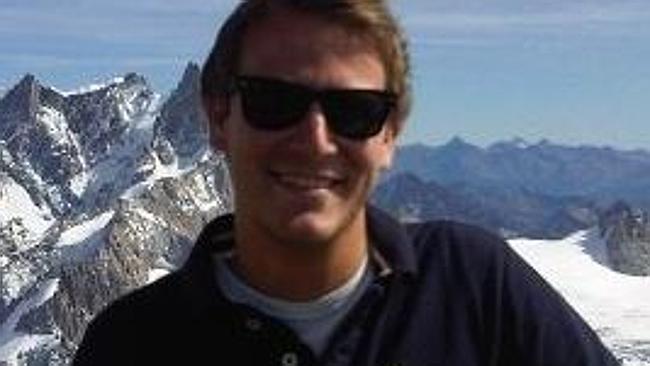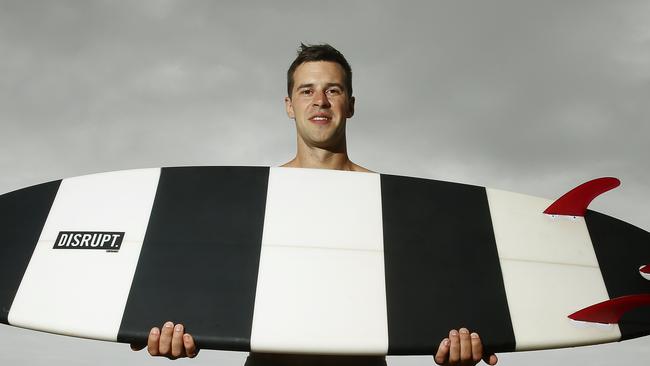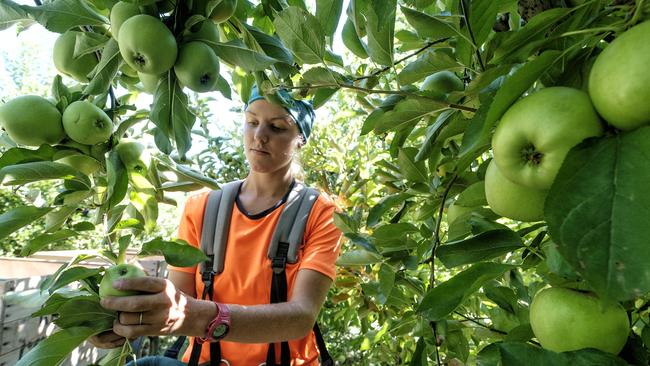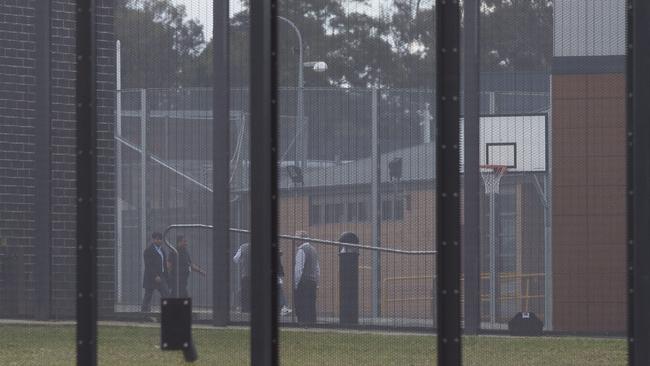Visa system failing Australian start-ups
A HIGH-FLYING entrepreneur who was deported from Australia has thrown a spotlight on how the immigration system is failing start-ups.

THE plight of one of the country’s highest flying entrepreneurs, who was deported back to his home country because he wouldn’t go fruit picking, has shown how the immigration system is too “complex” and “not working in Australia’s best interests,” an expert in migration law has said.
The damning assessment has thrown a spotlight on the hurdles to achieving Prime Minister Malcolm Turnbull’s much talked about “innovation” boom which has start-up businesses at its core.
However, the Department of Immigration and Border Protection said anyone who provided false information about their visa risked it being cancelled, no matter who they were.
In December, Mr Turnbull announced a $1 billion National Innovation and Science Agenda.
“Our appetite for risk is lower than in comparable countries, which means Australian start-ups and early stage businesses often fail to attract capital to grow,” he stated.
But it’s not just cash those start-ups are lacking. They’re having their manpower ripped away from them as well, if the case of Chris Bailey is anything to go by.
The Chief Operating Officer of Sydney company Disrupt, which allows people to design their own surfboards, was in the US at a conference and helping to set up a Los Angeles branch for the expanding start-up.
But upon his return to Australia, earlier this week, the British citizen was stopped at Sydney Airport.

In a post on LinkedIn, Disrupt’s CEO Gary Elphick said “When our COO arrived back to Sydney he was pulled aside by Border Force [and] subsequently held in a detention centre/prison for two days before being deported to the UK, leaving his car, house, family, and most importantly our company here in Sydney.”
Mr Bailey, who was on a working holiday visa which is primarily for backpackers, was held in Villawood detention centre in western Sydney — a long way from Disrupt’s home at Bondi Beach.
Mr Elphick said the advice from Border Force was that the only way Mr Bailey might be able to remain in Australia was if he were to “add value to the economy by picking bananas” for three months.
“This probably comes as a surprise to many people but that’s how our backward Immigration policy works, they see that picking fruit as adding more to the countries [sic] economy than working for a high-growth start-up,” he said.
Ironically, the pair had previously advised the Government on how to design visas to attract staff for start-ups.

Law expert at the University of Adelaide, Dr Joanna Howe, said small business and start-ups were falling foul of Australia’s visa process.
“My own view is that at the moment the various visa types don’t work together and it’s not working in Australia’s best interests.”
One of the problems was the mass of red tape. To hire someone from overseas on a class 457 temporary business visa, one of the most common, the employee and the employer need to be approved and then an official green light given to them pairing up.
“It’s a complex process that takes time and tends to benefit organisations that can pay for migration specialists to do the paper work. For smaller business that’s not an option,” said Dr Howe.
Disrupt had aimed for a business visa, Mr Elphick said. But while Mr Bailey had been approved, the company had not “because, as a start-up, the Government refuses to recognise us as a business for the purpose of sponsoring highly-skilled individuals.”
A department spokesman said they had no record of the company applying. Not so said Mr Elphick. Talking to news.com.au he insisted the company had started the process, but through an agent.
He admitted that Mr Bailey hadn’t helped his case by lying to officials.
“Our COO chose to tell immigration that he had completed his fruit-picking as the only way he could continue to work here, to be clear he was in the wrong and fully accepts responsibility.
“However when backed into a corner with no other options, what are you supposed to do?”
Working holiday-maker visa holders expire after a year but can be extended for a further 12 months if the applicant works in agricultural. This often means picking fruit and vegetables for three months.

Dr Howe told news.com.au the visa was increasingly being used for the wrong purpose.
“It’s not supposed to be a work visa, it’s designed for cultural exchange, but it’s increasingly being used as a de facto business visa because we don’t have a visa that’s appropriate.”
While many business visas exist, they often have high bars to approval including having millions of dollars in assets or the chosen industry being on a narrow skilled occupation list.
“There needs to be a rethink of Australian migration to make it flexible for the new innovation economy,” said Dr Howe.
“Sponsorship may not work for entrepreneurs who are involved in start-ups because the employer may not be able to pass the sponsorship threshold.”
But any rethink had to be done “thoughtfully and carefully”, she said, due to the issue of unscrupulous employers rorting the system.
Earlier this month, a Senate committee released a report into Australia’s temporary visa system titled A National Disgrace.
The report listed multiple concerns including visa holders being underpaid and abuse of the working holiday visa program.

In a submission to the committee, the Migration Institute — the peak body for migration agents — said the necessity for people to go fruit picking was leading to some being exploited.
The report recommended more oversight of visa holders but also tougher conditions on the issuing of 457 business visas which could make it even harder for some smaller, legitimate, businesses to bring in talented workers from overseas.
A spokesman for the Department told news.com.au that there were “numerous visa pathways for business executives’ and the companies that sponsor them but, “providing false information to fraudulently obtain a visa can have consequences, including visa cancellation”.
Start-up companies were not excluded from sponsoring skilled personnel but had to have a “strong record or a demonstrated commitment” to employing and training local people.
“There are no records of a company named Disrupt engaging with this process,” the spokesman said.
While a new entrepreneur visa was under discussion there was no final decision on it.
Mr Elphick said he was “gutted” at how events had panned out. And he warned the insistence that people pick bananas could go pear shaped for Australia.
“With the Government deporting my COO and business partner and with no light on the horizon, we’re left with very little option than to pull the plug on Australia as our HQ.
“It’ll be a sad day for all of us if we’re forced to do that.”
News.com.au contacted the Department of Immigration and Border Protection
For comment.




